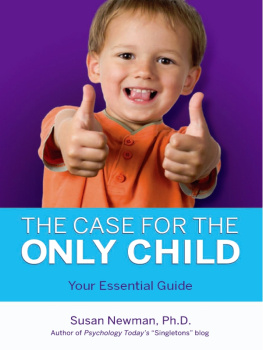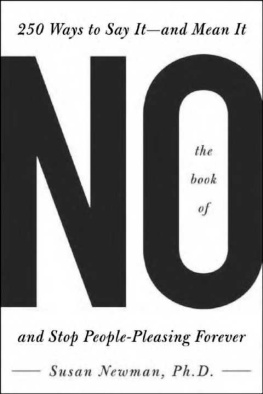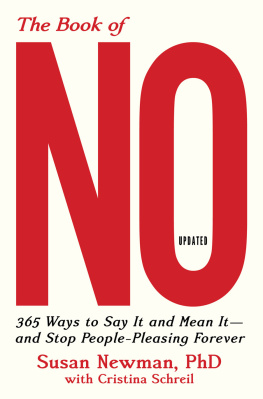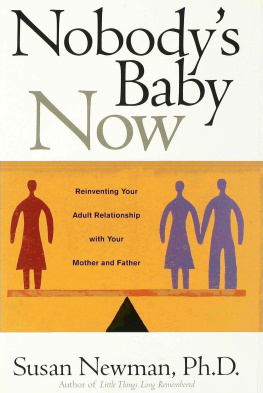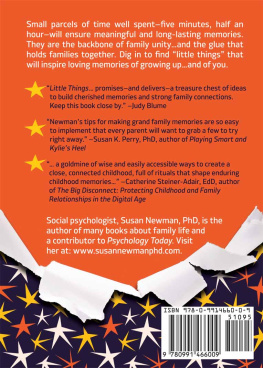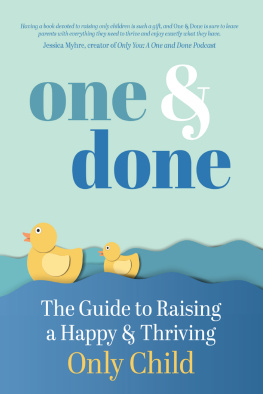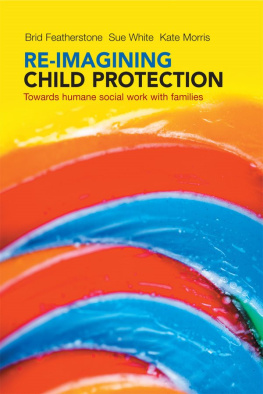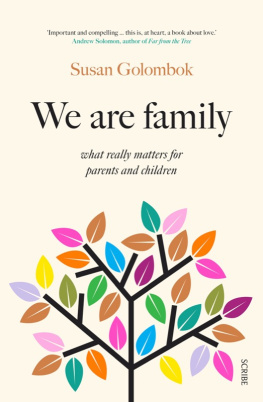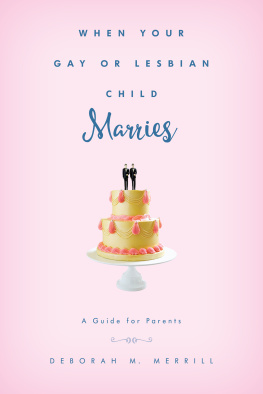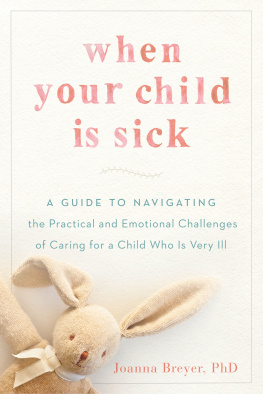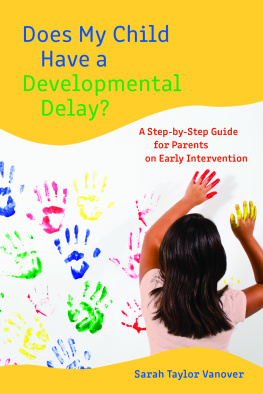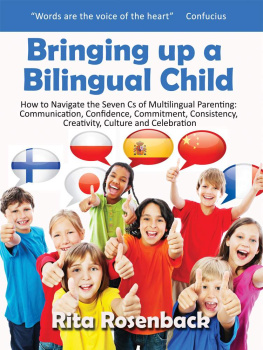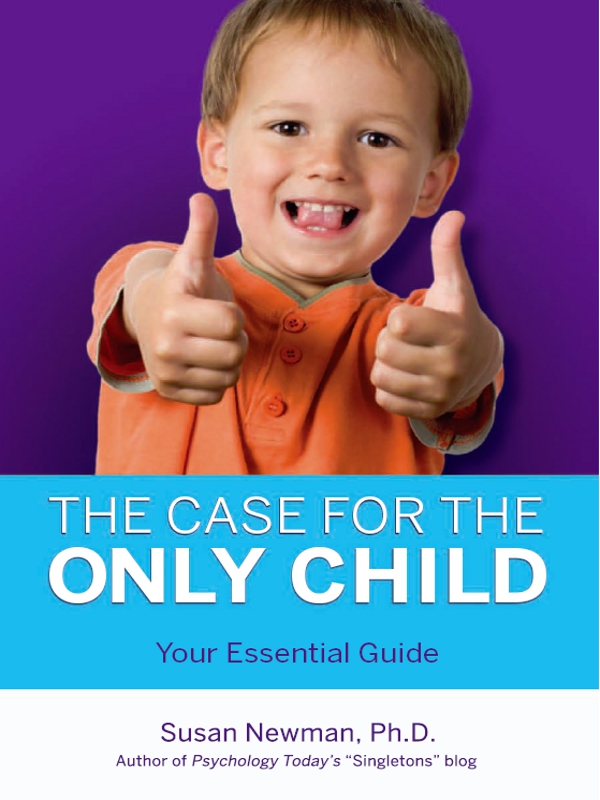
Praise for
The Case for the Only Child
I love books that present good news most people dont know about. This is such a book. Susan Newman lets you know that far from being damaged, only-children can have it made! As a parent, you can have one and be done, and Dr. Newman shows you why. Goodbye guilt, welcome the fulsome joy of being parents to a one-and-only!
Edward Hallowell, M.D., author of
The Childhood Roots of Adult Happiness and other books
Susan Newman has written a delightful, honest, and readable book that explores a complex issuewhether to have more than one child. She presents and explores every possible conflict and scenario with compassion for all sides of the issue and for all members of the family.
Jane Mattes, LCSW, author of Single Mothers by Choice,
www.singlemothersbychoice.org
For anyone debating the issue of filling your nest, but how full? this book is a wise and empowering read. As the mother of an only child and the founder of MotherhoodLater.com, a community for midlife mothers, I know the self-doubt and judgment that some parents experience. Susan Newman offers a validating and refreshing pat on the back for those going the only-child route.
Robin Gorman Newman, Founder/Parenting Blogger,
www.MotherhoodLater.com
THE CASE
FOR THE
ONLY CHILD
Your Essential Guide
Susan Newman, Ph.D.

Health Communications, Inc.
Deerfield Beach, Florida
www.hcibooks.com
Library of Congress Cataloging-in-Publication Data
Newman, Susan.
The case for the only child : your essential guide / Susan Newman.
p. cm.
Includes bibliographical references.
ISBN-13: 978-0-7573-1551-0 (trade paper)
ISBN-10: 0-7573-1551-8 (trade paper)
ISBN-13: 978-0-7573-9189-7 (e-book)
ISBN-10: 0-7573-9189-3(e-book)
1. Family size. 2. Only child. 3. Family planning. I. Title.
HQ760.N49 2011
306.874dc22
2011011960
2011 Susan Newman
All rights reserved. Printed in the United States of America. No part of this publication may be reproduced, stored in a retrieval system, or transmitted in any form or by any means, electronic, mechanical, photocopying, recording, or otherwise, without the written permission of the publisher.
HCI, its logos, and marks are trademarks of Health Communications, Inc.
Publisher: Health Communications, Inc.
3201 S.W. 15th Street
Deerfield Beach, FL 33442-8190
Cover photo iStockphoto
Interior design and formatting by Lawna Patterson Oldfield
To all those who have had
or may have to answer the question
"When are you having
another child?"
Other Books by Susan Newman, Ph.D.
Under One Roof Again: All Grown Up and (Re)learning toLive Together Happily
The Book of NO: 250 Ways to Say Itand Mean It andStop People-Pleasing Forever
Nobodys Baby Now: Reinventing Your Adult Relationship withYour Mother and Father
Parenting an Only Child: The Joys and Challenges of Raising YourOne and Only
Little Things Long Remembered: Making Your Children Feel Special Every Day
Little Things Mean a Lot: Creating Happy Memories with Your Grandchildren
Little Things Shared: Lasting Connections Between Family & Friends
Getting Your Child into College: What Parents Must Know
Lets Always... Promises to Make Love Last
Dont Be S.A.D.: A Teenage Guide to Stress, Anxiety & Depression
It Wont Happen to Me: True Stories of Teen Alcohol and Drug Abuse
You Can Say No to a Drink or a Drug: What Every Kid Should Know
Never Say Yes to a Stranger: What Your Child Must Know to Stay Safe
Memorable Birthdays: Now a Guide, Later a Gift
Contents
A few months after I had my son, friends began asking me when I was going to have a second child; I felt bombarded by their questions and had many questions of my own. As an older mother, I considered the possible health risks of another pregnancy. Should we adopt instead? If we made the choice to raise an only child, how would that decision affect our son? What would it be like for him to grow up without siblings? Were we being selfish? I suspect you are asking yourself some of the same questions.
I had my son in my second marriage, and I mulled over those questions many times. Self-doubt, indecision, and concerns about having decided to have an only child were a constant presence for many years. In a first marriage, I married a man with full custody of his four children. Having raised stepchildren in one household, I was in a unique position to compare the dynamics of siblings versus no siblings. I watched my sons behavior for stereotypical signs of the only child: was he lonely, spoiled, bratty, self-centered peculiar in some way? And I looked for ways to prevent the nasty stereotypes from applying to him. That was more than twenty years ago.
During those years, I have conducted three research projects in which I interviewed only children and their parents to find answers to my questionsroughly one study every ten years. What is different now from the previous studies is that many more people have one child. Even before the 2010 Census figures were released, it was evident that the only-child population had continued to grow, not only in the United States, but also around the world.
This time when I began looking for participants, the floodgates opened; my e-mail inbox was full of requests from people who wanted to talk about raising or being an only child. With almost no effort on my part, the network of parents of only children and only children themselves fed the research. I spoke with parents of only children from Florida to Seattle, in varied economic groups, and holding a huge range of jobs. One person led to another until I stopped the interview process at 100 as I did with the 1990 and 2000 interview sets. Because everyone seems to know someone who is or has an only child, no doubt this research could have continued for many more months.
I have changed the names of people interviewed to protect their identities, but not their words or the feelings their statements convey. What the interview subjects tell you will unscramble many of the complex issues and emotions that play into the decision to have an only child. For the past three years, I have been writing a blog for Psychology Today magazine called Singletons where I explore the conflicts and choices surrounding the family and the only child. While I am on the subject of names, I use singletons and onliesas only children have come to be called. At times, when I defend the merits of only-child families or set the record straight about having children after age 35, for example, readers respond with an uproar that feels like a lashing in the town square. When I posted pieces such as 40 Is the New 20 for Having Babies or When Will the Duggars Stop? readers answered with strong opinions, and their comments reflected the sensitivity and controversy that surrounds the subject of family size.
When I posted items in an effort to correct thinking and debunk stereotypes about only children, some people expressed their outrage, including only children themselves who had unhappy childhoods. I heard from children with siblings who voiced their views, as wellsome positive, some negative about their brothers and sisters. This book includes all the perspectives I encountered, including comments from experts I interviewed directly, and the latest findings and discoveries from leading psychologists and researchers.
Next page
